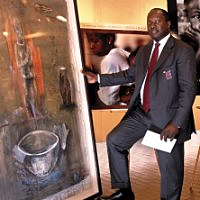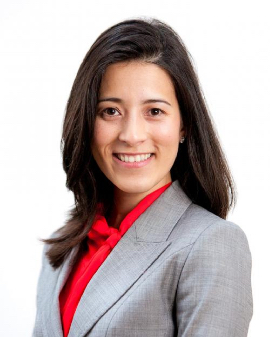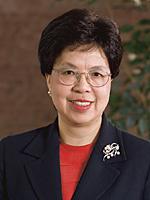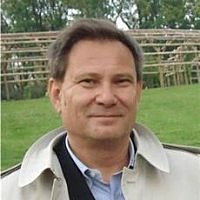The Medicines Patent Pool (MPP) has announced its first license agreement for a hepatitis C medicine, signed with Bristol-Myers Squibb for daclatasvir, a novel direct-acting antiviral that has been proved effective in helping cure multiple genotypes of the HCV virus.
The royalty-free license will enable generic manufacture of daclatasvir for sale in 112 low- and middle-income countries (LMICs), 76 of which are World Bank classified middle-income nations. The MPP notes that nearly two-thirds of all patients who are living with hepatitis C in the LMICs are resident in territory covered by this agreement.
The Medicines Patent Pool is a United Nations-backed public health organization offering a public-health driven business model that aims to facilitate the development of and lower the prices and increase access to medicines for diseases like HIV, viral hepatitis C and tuberculosis in low- and middle-income countries through voluntary licensing and patent pooling. Meeting November 4-5 in Geneva, the Executive Board of UNITAID — a World Health Organization (WHO) agency that plays an important role in the global effort to defeat HIV/AIDS, Hepatitis C, tuberculosis and malaria, by facilitating and speeding up the availability of improved health tools, including medicines and diagnostics — approved the MPP’s proposals to improve access to both life-saving direct acting antivirals (DAAs) to treat hepatitis C and new and re-purposed medicines for tuberculosis. UNITAID, established in 2006, created the MPP in 2010 to provide better health options for people living with HIV. To date, MPP has signed agreements for twelve antiretrovirals (ARVs) for countries home to 87-93 percent of people living with HIV in the developing world.
The MPP and Bristol-Myers Squibb have partnered previously, negotiating an agreement in December 2013 for the Bristol-Myers Squibb HIV medication atazanavir. This new daclatasvir agreement allows for manufacturers to be based anywhere in the world; generic daclatasvir can be made in any country as long as it is for sale in the 112 countries covered by the agreement. Importantly, the license allows generic manufacturers to develop fixed-dose combinations with other direct-acting antivirals to create powerful pan-genotypic regimens that offer the potential to treat all of the six major genotypes of HCV. Pan-genotypic regimens are crucial in resource-limited countries where access to genotype testing is limited, and Bristol-Myers Squibb will provide a technology transfer package and information needed for the manufacture and registration of the product.
 “This agreement with the MPP is an important component of Bristol-Myers Squibb’s overall global efforts to make daclatasvir broadly available to patients around the world to help eliminate HCV,” says Amadou Diarra, Bristol-Myers Squibb’s Head of Global Policy, Advocacy & Government Affairs. “We are pleased to work with the MPP in this collaborative effort.”
“This agreement with the MPP is an important component of Bristol-Myers Squibb’s overall global efforts to make daclatasvir broadly available to patients around the world to help eliminate HCV,” says Amadou Diarra, Bristol-Myers Squibb’s Head of Global Policy, Advocacy & Government Affairs. “We are pleased to work with the MPP in this collaborative effort.”
Daclatasvir, a once-daily, all oral treatment, inhibits HCV by targeting a key protein, NS5A, involved in the replication of the virus. Daclatasvir, in combination with sofosbuvir, produces high cure rates after 12 weeks of treatment, even among HIV/HCV co-infected patients. Recent Phase III studies demonstrated that the daclatasvir regimen could cure up to 100% of HCV patients depending on genotype and stage of liver disease.
“I greatly welcome the broadening of the Medicines Patent Pools mandate to encompass hepatitis C and tuberculosis, giving MPP a vital opportunity to help secure lower prices for medicines to fight these two lethal diseases,” commented Philippe Douste-Blazy, Chair of the Executive Board at UNITAID.
 “The MPP is a cornerstone of UNITAID’s efforts to transform the HIV medicines market and rapidly scale up HIV treatment in low- and middle-income countries,” says UNITAID’s Executive Director Lelio Marmora. “The MPP now joins us in helping to meet international targets to make curative hepatitis C and TB medicines accessible to those who need them.
“The MPP is a cornerstone of UNITAID’s efforts to transform the HIV medicines market and rapidly scale up HIV treatment in low- and middle-income countries,” says UNITAID’s Executive Director Lelio Marmora. “The MPP now joins us in helping to meet international targets to make curative hepatitis C and TB medicines accessible to those who need them.
The WHO estimates that hepatitis C (HCV) affects between 130 and 150 million people worldwide, the vast majority of whom live in low- and middle-income countries. New direct acting antivirals that are effective across all major HCV strains could cure millions, so building on its HIV model, the MPP is seeking to license for generic manufacture new and pipeline hepatitis C medicines that can eliminate the virus in short courses of oral therapy. Accordingly, the MPP has secured licenses for twelve WHO preferred first-line and second-line HIV treatments for both adults and children over three years of age: raltegravir (RAL), lopinavir/ritonavir (LPV/r) for pediatric use, tenofovir alafenamide (TAF), dolutegravir (DTG) for both pediatric and adult care, atazanavir (ATV), tenofovir disoproxil fumarate (TDF), emtricitabine (FTC), elvitegravir (EVG), cobicistat (COBI), abacavir (ABC) for pediatric use and darunavir (DRV).
The MPP has also sub-licensed to generic manufacturers, who are already beginning to produce and supply HIV medicines at a lower cost. As of January 2015, the MPP had signed sub-licensing agreements with 14 key generic manufacturers: Aurobindo Pharma Limited, Cipla, Desano, Emcure Pharmaceuticals, HEC Pharm, Hetero Labs, Huahai Pharmaceutical, Laurus Labs, Lupin, Micro Labs, Mylan, Shasun Pharma Solutions, Shilpa Medicare, Strides Arcolab.
 “The recent approval of new treatments with greater efficacy and low side effects represents an incredible opportunity to move closer to eradication, but only if these drugs are affordable and accessible,” says Raquel Peck, CEO for the World Hepatitis Alliance, an umbrella organisation representing 400 million patients. “We have urged for the Medicines Patent Pool’s participation in the HCV response and are thrilled with the UNITAID board decision.”
“The recent approval of new treatments with greater efficacy and low side effects represents an incredible opportunity to move closer to eradication, but only if these drugs are affordable and accessible,” says Raquel Peck, CEO for the World Hepatitis Alliance, an umbrella organisation representing 400 million patients. “We have urged for the Medicines Patent Pool’s participation in the HCV response and are thrilled with the UNITAID board decision.”
 Earlier this year, the WHO added several new hepatitis C treatments, including daclatasvir, to its Essential Medicines List, underscoring the urgent need to promote equitable access to innovative medicines. “This agreement could change the lives of millions of people with hepatitis C,” comments WHO Director-General Dr. Margaret Chan. “It’s a vital step towards ensuring essential treatments are available to all who need them, both rich and poor.”
Earlier this year, the WHO added several new hepatitis C treatments, including daclatasvir, to its Essential Medicines List, underscoring the urgent need to promote equitable access to innovative medicines. “This agreement could change the lives of millions of people with hepatitis C,” comments WHO Director-General Dr. Margaret Chan. “It’s a vital step towards ensuring essential treatments are available to all who need them, both rich and poor.”
“The licence comes shortly after the MPP announced its mandate expansion into the area of hepatitis C and on the heels of a six-month dialogue with patient groups, civil society and other stakeholders on best approaches to improving access to new curative HCV solutions,” says MPP Executive Director Greg Perry. “Thus, we believe the licence takes into consideration the concerns of patient advocates who have been campaigning for some time for new life-saving innovations such as daclatasvir to reach more people quickly. “BMS should be congratulated for their strong commitment to patient access and for sharing their IP and technology so widely. We will continue to work with the company to review access needs for daclatasvir.”
 “We are very pleased to see that the recent decision of the UNITAID board to support the work of MPP in the HCV space has made possible the conclusion of an agreement opening the way to wider access to effective medicines against HCV among those in need,” observes UNITAID’s Deputy Executive Director, Philippe Duneton.
“We are very pleased to see that the recent decision of the UNITAID board to support the work of MPP in the HCV space has made possible the conclusion of an agreement opening the way to wider access to effective medicines against HCV among those in need,” observes UNITAID’s Deputy Executive Director, Philippe Duneton.
The MPP, together with UNITAID, the Drugs for Neglected Diseases initiative (DNDi) and the Clinton Health Access Initiative (CHAI), is a partner in the Paediatric HIV Treatment Initiative (PHTI) to accelerate the development of appropriate paediatric FDCs for resource-limited settings.
The MPP notes that while patents are intended to reward innovation, unless licensed, a patent can also prevent production or sale of lower cost, quality assured generic medicines or development of novel formulations. Moreover, because many developing countries import medicines from elsewhere, a patent in a key generic-producing country can mean higher prices in many countries where drugs are most needed. Licensing can both improve access to crucially important medicines as well as advance the delivery of new products.
The MPP offers a model that it says works for all stakeholders. Through licenses, patent holders have an effective way to share their innovative products in resource-poor settings and may be compensated by a fair royalty. Low-cost manufacturers are enabled to produce affordable new medicines more easily and rapidly. Budgets of philanthropic donors and developing country governments are able to be stretched farther, getting treatment to many more people. Most importantly, people living with the targeted diseases are gaining faster access to quality, life-saving treatments.
Sources:
The Medicines Patent Pool
Bristol-Myers Squibb
World Health Organization
UNITAID

